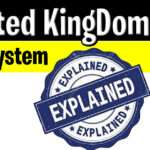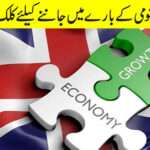England economy 2017-2018
England has the largest economy and highly industrialized country in the United Kingdom. It is a specific producer of chemical products and textiles. Even if, locomotives, automobiles, and aircraft are among other specific industrial products of England, a significant proportion of the income of England comes from its capital City of London. Since the 1990s, the sector which is associated with financial services has been playing a greater role in the British economy and the City of London is one of the largest financial centers of the world. London city is heavily concentrated with futures exchanges, Banks, commodity and insurance companies. The official currency of England is British pound sterling and the Bank of England and the central bank of the UK is located in London.
Economic growth of UK made itself better than expected in the six months after the Brexit vote, particularly as far as consumer spending is concerned. But growth slowed in the first half of 2017 as inflation rose sharply, squeezing household spending power. In our main scenario, we project UK growth to slow from 1.8% in 2016 to around 1.5% in 2017 and 1.4% in 2018. This reflects slower consumer spending growth, offset by some rise in UK exports and public investment. But risks to growth are weighted to the downside due to Brexit. The housing market is likely to remain subdued for the next couple of years, but lack of supply and rising demand will keep property prices rising in the longer term.
The Bank of England is the main bank of England UK, which is responsible of all monitory measures of UK, will keep interest rates on hold for the shorter period of time, but the interest rates can also get higher in the coming part of the year or most probably in 2018 if growth and inflation evolve broadly as we think it will be.
We also discussed in this article how machine learning techniques can help to estimate or now cast, the current rate of growth of the UK economy in a more timely way than UK official GDP statistics. This article will help you to perform well in picking up changes in UK GDP growth over the past four years and a coming year of 2018.
UK Economic Outlook July 2017
UK economic prospects
The UK economy grew by 2% in the year to Q1 2017, but the quarterly rate fell to 0.2%, primarily as a result of a softening in consumer expenditure and the services sector. In our main scenario, we forecast UK growth to slow to 1.5% in 2017 and 1.4% in 2018. The UK would maintain a strategic distance from retreat in this situation, in spite of the fact that dangers to development are as yet weighted to some degree to the drawback given the vulnerabilities related with Brexit. A key factor behind the overall slowdown is a moderation in consumer spending growth to around 2% in 2017 and 1.5% in 2018. This reflects a squeeze on household spending power from higher inflation and sluggish wage growth. Wage growth continues to be subdued despite the lowest unemployment rate since 1975. Investment held up relatively well in the first quarter, but uncertainty surrounding Brexit may weigh on this going forward.
We anticipate that London could remain the quickest developing UK area in 2017-18, yet its pace of extension is relied upon to moderate essentially from prior fast rates. Other regions are projected to see average real growth in 2017-18 of around 1-1.5%, but we do not predict negative growth in any region in our main scenario. Consumer price inflation is likely to rise above 3% later this year, but could gradually decline later next year.
The Bank of England faces a dilemma on interest rates due to a combination of slowing growth and rising inflation. We do not expect an immediate rate rise, but a gradual increase is likely to begin at some point over the next 12-18 months in our main scenario. All in all the administration area of this economy is currently the biggest in England, with essential enterprises and assembling. The development business is the main real auxiliary industry which is powered by development of economy gave fundamentally by the money related segment, authoritative and developing administrations.
Economy Sectors of UK
UK Agriculture
Agriculture is efficient, highly mechanized and extensive by European standards, with only 2% of the Labor force producing about 60% of food needs of the people of England so agriculture of England contributes approximately 2% of England Gross Domestic Products (GDP). Around 2/3 of production is referred to arable crops and 1/3 to livestock. Agriculture of this country is subsidized by Common agricultural Policy of the European Union. The basic crops that are grown in England are oats, wheat, potatoes, barley and sugar beets.
UK Fishing
England is one of the leading fishing nations of the world. Fleets of this country bring home fish of every type, ranging from herring to sole. Grimsby, Great Yarmouth, Fleetwood, Kingston upon Hull and Lowestoft are the specific coastal towns that have greater fishing industries.
UK Finance
London is the capital of England. It is also a major financial district of England, and one of the largest financial centers of the world. In this city, London Stock Exchange and many other exchanges are based. Service industries of London, specifically business services, insurance and banking account for the largest GDP’s proportion and employ about 80 % of the population which is working.
Leeds is second largest financial center of England, with over 30 international and national banks based in this city. Over 124,000 people are employed in many financial services and banking in Leeds.
Manchester is the largest professional services and financial sector outside of London and it is private equity capital of Europe.
UK Manufacturing
Manufacturing industries of England still accounts for 26% of the total GDP of UK. England remains a main player in the aerospace, pharmaceutical, defense and British companies and chemical industries worldwide continue to have a specific role in the sector with foreign investment.
UK Tourism
In 2009, tourism accounted for £96 billion of GDP and 8.6% of the economy of England. It employs more than 2 million people which are around 4% of the working population. The largest center for tourism is also a city of London, which attracts millions of foreign tourists every year.
Hope, now you are able to describe the main part of England’s economy in front of your friend and family.
Property Business in UK
Until 2014, focal London saw the most quick house value development; however energy has now undulated out first to the external London wards and now to suburbanite belt towns and urban communities outside London. Our examination demonstrates this is ordinary of examples seen in past house value cycles. House value development has just impeded since the Brexit vote, with exchange volumes well down. We anticipate that house value development will moderate further for the time being, yet in the more drawn out term absence of supply could in any case observe property costs rise quicker than normal income.
Our exploration likewise demonstrates wide varieties in house value drifts the nation over finished the previous decade. In around a fourth of UK nearby experts, normal house costs are still lower than their pre-emergency crest levels in 2007, while in London they are over 60% higher.






